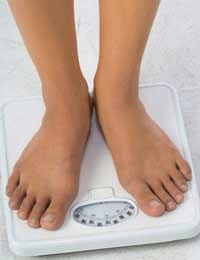How Individual Factors Affect Eating Disorders

“Eating disorders are diagnosed in individuals who meet specific mental health criteria as well as engage in disordered eating behaviours, including when they eat, why they eat, what they eat and how much they eat (or don’t eat). The most common eating disorders in society today are anorexia nervosa (anorexia), bulimia nervosa (bulimia), and binge eating disorder.
Though each of these disorders result in different eating behaviours, each occurs when sufferers can not separate their emotions from their eating habits and this skews their eating behaviours. Eating disorders are present across age, gender, race and income levels, however eating disorders are approximately eight times more likely to affect women than men and are also more frequently found among younger women. This is generally true of eating disorders across the world.
Common Eating Disorders
The most common eating disorders are anorexia, bulimia and binge eating disorder. Anorexia is an eating disorder in which the sufferer is terrified of gaining weight and decreases the amount of food that (s)he will eat in an attempt to limit weight and body fat. Bulimia is an eating disorder marked by the consumption of a great amount of food in one sitting and then the purging of this food by inducing vomiting or taking laxatives and/or diuretics. Binge eating disorder is also characterised by the consumption of large amounts of food at one sitting but does not include the purging of this food afterwards. Though eating disorders are often associated with different signs and symptoms, they are often connected to low self esteem, poor body image, environments obsessed with thinness, a lack of support systems and possibly even genetics.Self Esteem and Eating Disorders
Self esteem, or the emotional image a person holds of him/herself, is often considered to be low in individuals suffering from eating disorders. Low self esteem means that these individuals lack confidence in their own self worth, skills and abilities and it often leads to feelings of worthlessness and disinterest in the future, usually because they are unable to imagine that it will be happy or satisfying. Individuals suffering from low self esteem will often give off a beaten appearance, including walking with their heads down, refusing to meet others’ eyes when speaking, and rarely offering advice or opinions during discussions. Apologising often, even for situations that are not their fault, is also a common trait in individuals with low self esteem.Body Image and Eating Disorders
Individuals suffering from eating disorders often have poor body images, or negative (and often skewed) perceptions of their own bodies. Anorexics often believe that their bodies are heavy even when they are not, and bulimics and binge eaters may recognise that their bodies are overweight but remain incredibly dissatisfied with them and continue to eat excessively nonetheless. In addition to weight, those with eating disorders may also consider themselves ugly regardless of their actual features.Environment, Support Systems and Eating Disorders
Many eating disorder experts feel that the present media environment, in which thinness and beauty are held up as arguably the most important traits in a woman, also influences the development of eating disorders. Individuals who do not have proper support systems which applaud their skills and talents are thought to be at particular risk of falling prey to these messages.Genetics and Eating Disorders
Finally, research is ongoing into whether or not genetics plays a part in the development of eating disorders. Some studies have discovered that individuals with eating disorders may have relatives also living with eating disorders, but causal links between the two have not yet been identified or accepted by the international medical community.Eating disorders such as anorexia, bulimia and binge eating disorder are associated with a variety of signs and symptoms. Individual factors associated with eating disorders often include low self esteem, poor body image, environments espousing beauty and thinness, a lack of support systems and possibly genetics.
For further information on eating disorders, visit with a medical professional or the contact the Eating Disorders Association and/or National Centre for Eating Disorders.


Re: Eating by Texture
i can't eat porridge, yogurt and the most types of meat. also i can't drink kefir and juices. i just can't stop gagging while eating/drinking…
Re: Colour Coded Eating
I eat all colors but I can't have more than one color in my mouth at a time, like I can't eat fruity pebbles there's too many colors that I…
Re: Eating by Texture
I need to understand my oroblem. Eating health is hard. I cant really diet due to food allergies and diabetes, but I have a lit of food…
Re: Eating Disorders and the Physical Signs
I’ve been to the gp several times but apparently I don’t look anorexic. I’m 5’3 and weigh around 49 kg. When I eat I…
Re: Dental Damage and Eating Disorders
If you're worried about your weight, eat healthy, research your ideal weight for your age, height and bone structure and…
Re: Eating by Texture
Hi I've avoided soft textured food forever. My father also & he has this full blown, only eats crunchy things. Over the decades it's got better…
Re: Recovering From Anorexia: How Do I Prevent Swollen Stomach?
My daughter is recovering from anorexia (34 hrs old - diagnosed 15 years ago) What do I…
Re: Eating by Texture
I don’t like most veg. The only raw veg I can eat is cucumber. Cooked, I like carrots, cauliflower, baby corn, onion (if it’s well cooked and/or…
Re: Pica Disorder
Potato Boy back. I was doing great for a while but then shelby left me for my dad. I was doing so good. My best friends had an intervention for me and…
Re: Why Does Eating Make Me Feel Sick?
I'm a 22 year old female who has been suffering with anorexia for four years. My fiance and I recently broke up, and I had…